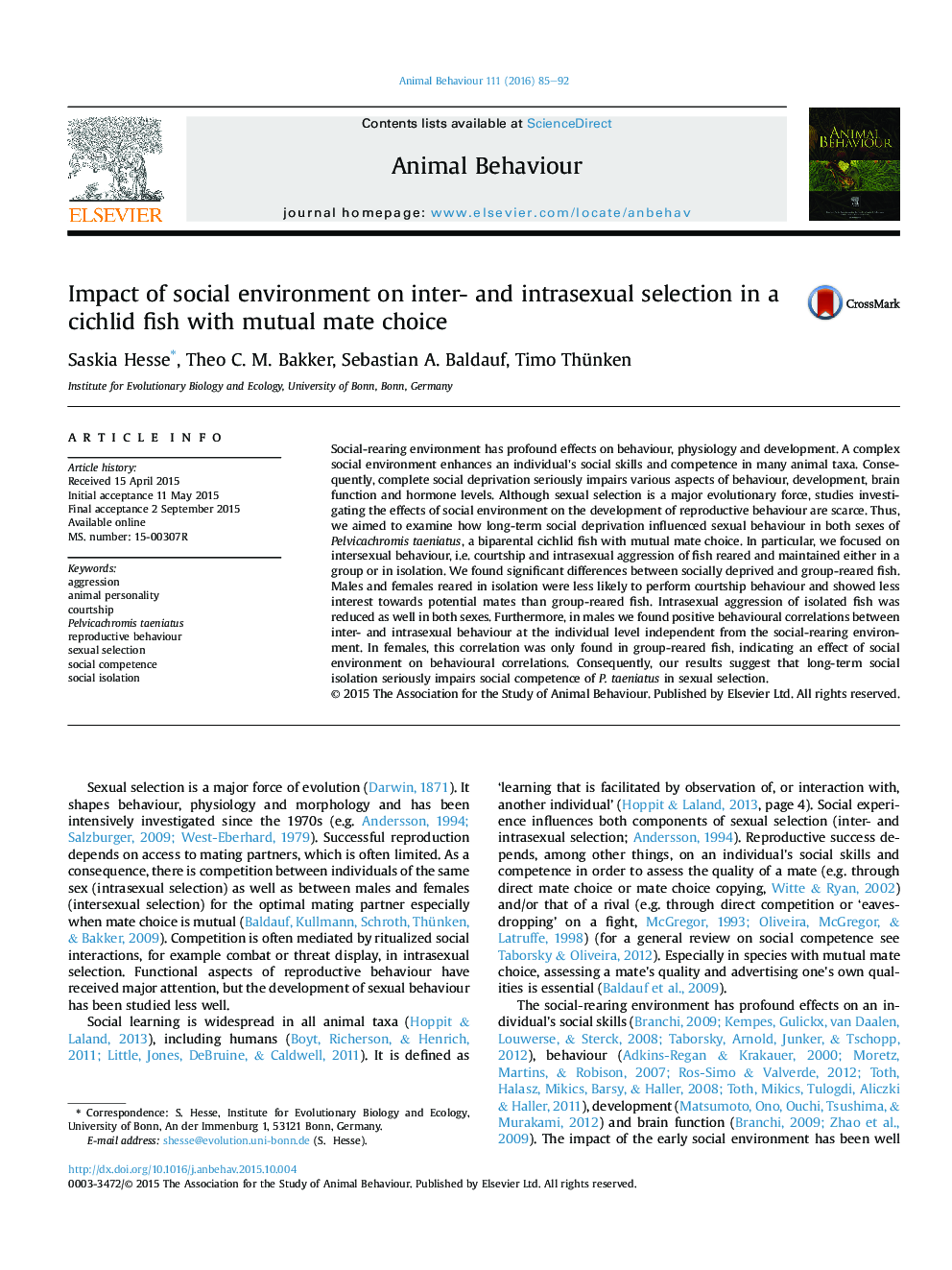| Article ID | Journal | Published Year | Pages | File Type |
|---|---|---|---|---|
| 8489378 | Animal Behaviour | 2016 | 8 Pages |
Abstract
Social-rearing environment has profound effects on behaviour, physiology and development. A complex social environment enhances an individual's social skills and competence in many animal taxa. Consequently, complete social deprivation seriously impairs various aspects of behaviour, development, brain function and hormone levels. Although sexual selection is a major evolutionary force, studies investigating the effects of social environment on the development of reproductive behaviour are scarce. Thus, we aimed to examine how long-term social deprivation influenced sexual behaviour in both sexes of Pelvicachromis taeniatus, a biparental cichlid fish with mutual mate choice. In particular, we focused on intersexual behaviour, i.e. courtship and intrasexual aggression of fish reared and maintained either in a group or in isolation. We found significant differences between socially deprived and group-reared fish. Males and females reared in isolation were less likely to perform courtship behaviour and showed less interest towards potential mates than group-reared fish. Intrasexual aggression of isolated fish was reduced as well in both sexes. Furthermore, in males we found positive behavioural correlations between inter- and intrasexual behaviour at the individual level independent from the social-rearing environment. In females, this correlation was only found in group-reared fish, indicating an effect of social environment on behavioural correlations. Consequently, our results suggest that long-term social isolation seriously impairs social competence of P. taeniatus in sexual selection.
Keywords
Related Topics
Life Sciences
Agricultural and Biological Sciences
Animal Science and Zoology
Authors
Saskia Hesse, Theo C.M. Bakker, Sebastian A. Baldauf, Timo Thünken,
